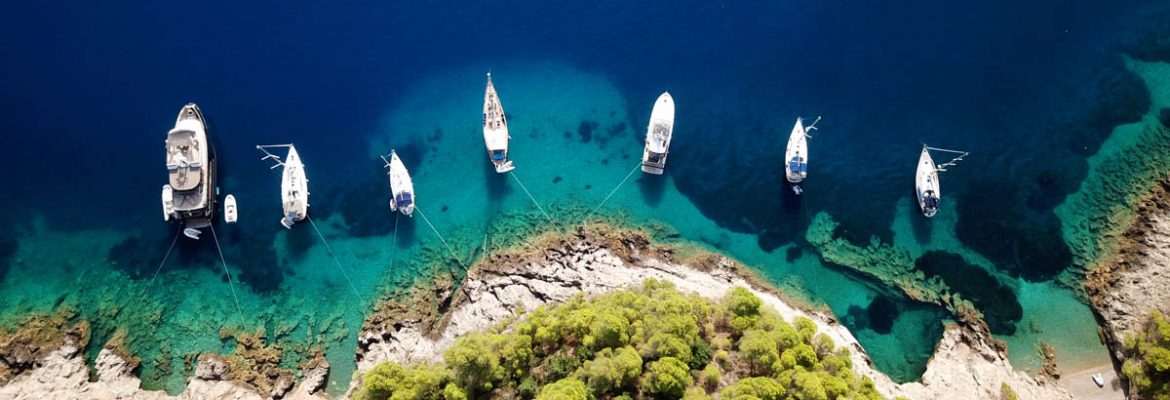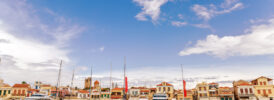The Ionian Islands have a special allure for travelers. They combine Greece’s most famous attributes – the endless azure waters, the relaxed island lifestyle – with a hint of glamour. While Corfu with its Venetian elegance has long been a top destination in Greece, Paxos has managed to stay under the radar. Let’s take a closer look.
Paxos Island Highlights

Just south of Corfu, this petite and lushly green beauty (just over 25 km²) has a romantic backstory: Poseidon needed an idyllic love-nest to share with the nereid Amphitrite, so he broke off the southern tip of Corfu. It’s been sought after ever since, starting with the Phoenicians who also colonized neighboring Cephalonia. Its Greek-speaking settlers from Epirus were mentioned by Homer. The famous sea battle of Actium, involving the combined fleets of Marc Antony and Cleopatra versus the fleet of Caesar Augustus, took place off Paxos’ south coast in 31 BC.
A Cosmopolitan History

This was long a part of the Byzantine realm, with interludes of rule by both pirates and Crusaders. In 1386, the island was conquered, along with Corfu, by the Venetians. Two fortifications remain – in Lakka in the north, and on a small islet called Agios Nikolaos across from Gaios, in the south. The French were here during the Napoleonic wars, along with the Russian-Turkish Alliance. Then Paxos was part of the Ionian Union established by the United Kingdom. Paxos – along with the other “Heptanissa” (“seven islands” – the Ionian Islands) became part of Greece in 1864.
Elegant Architecture, Interesting Crowd
The Venetians have set the tone here, with Luxurious Neoclassical Venetian mansions, charming smaller houses in the local vernacular, Venetian bell towers, and lovely tiled rooftops. Unlike the pure white preferred in the Cycladic islands, Paxos’ palate is of soft dusty pinks and warm ochres. An architectural highlight is the grand Agnelli villa. Beautiful as its architecture is, Paxos remains understated – a perfect example of quiet luxury. Consequently, it draws an interesting crowd of international creative and intellectual people.
Paxos: An Island for Nature and Culture
This quiet little island is packed with interesting things to do – whether a traveler seeks active holidays, a cultural interlude, or simply excellent swimming and dining.
Boating and Blue Caves
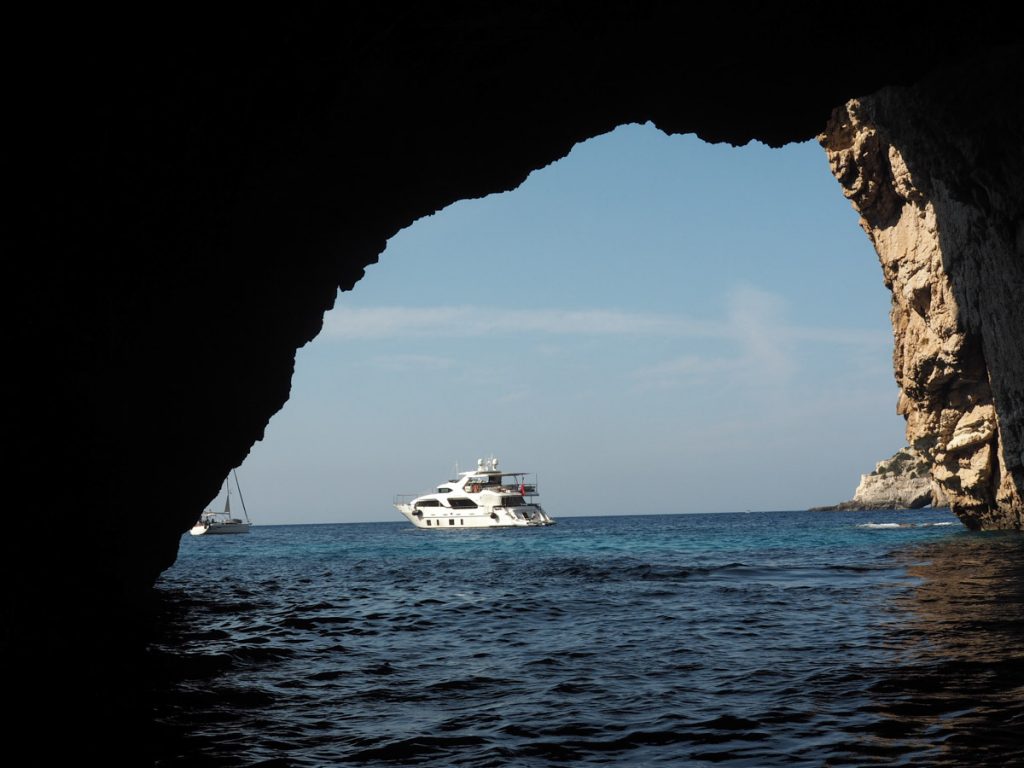
Paxos is wonderful for boating, with its famous Blue Caves. There are several of these magnificent caves along the island’s west coast. They are accessible only by boat, and some are large enough to enter by boat. The water is an astonishing shade, giving them their apt name.
A Paradise of Hiking Trails
Hikers, too, will be delighted. The Ionian Islands are famously green, offering dramatic scenery. Paths throughout the tisland pass through olive groves perhaps centuries old, offer stunning views, and access to fjord-like beaches sheltered by dramatic cliffs. The famous rock formation Tripitos is among many geological wonders hikers will enjoy. Antipaxos is also a fabulous hiking destination.
Antipaxos
This tiny island – less than 5km² – is just 3 km away. It makes a wonderful excursion. Oenophiles will be delighted- the little island is covered with vines and is well known for excellent wines. Vintners use both traditional methods and experiment with organic and natural winemaking for a varied experience.
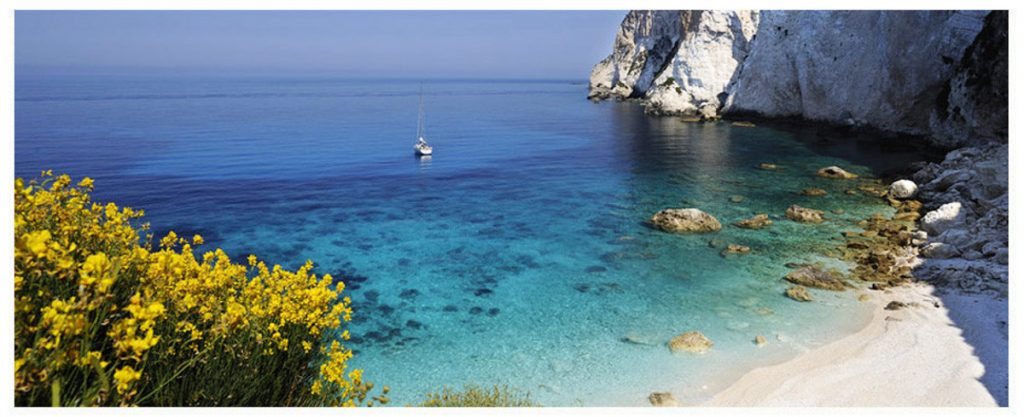 Antipaxos is also very well known for its beaches. Voutoumi and Vrika, on the island’s north end, are two unspoiled and lovely beaches with Caribbean-like waters. They are also excellent for snorkeling. Those wishing to explore cam walk further to secluded coves.
Antipaxos is also very well known for its beaches. Voutoumi and Vrika, on the island’s north end, are two unspoiled and lovely beaches with Caribbean-like waters. They are also excellent for snorkeling. Those wishing to explore cam walk further to secluded coves.
Paxos Festival
Decades ago, a British resident of Paxos, John Gough, invited musicians from London’s Guildhall to perform some classical pieces in the garden of his home on Paxos, for local residents to enjoy. Things took off from there, and now this annual event has grown into a great international celebration, with performances in various venues of Paxos. The festival brings a cultured crowd to the island.
Further Excursions: Corfu and the Epirus Coast
Corfu is a unique destination in all of Greece. There’s the famous Liston – built by the French during their brief rule to remind them of Paris’ Rue du Rivoli, and the Regency-style Palace of St. Michael and St. George. There is aso the magnificent Venetian Fortresses, the church of St. Spyridon, and of course the cricket pitch in the Spianada – all of these give Corfu town a unique cosmopolitan air.

As to the Epirus Coast – Greece’s western shores are much more than a departure point for the islands of the ionian. Fortunately, they are also relatively unknown – although very popular destinations among Greeks themselves. Parga and Sivvota are beach towns that make you feel as though you’re on an island. Preveza is famous for its splendid beaches of Ammoudia and Kastrosikia.
Paxos- A Discovery
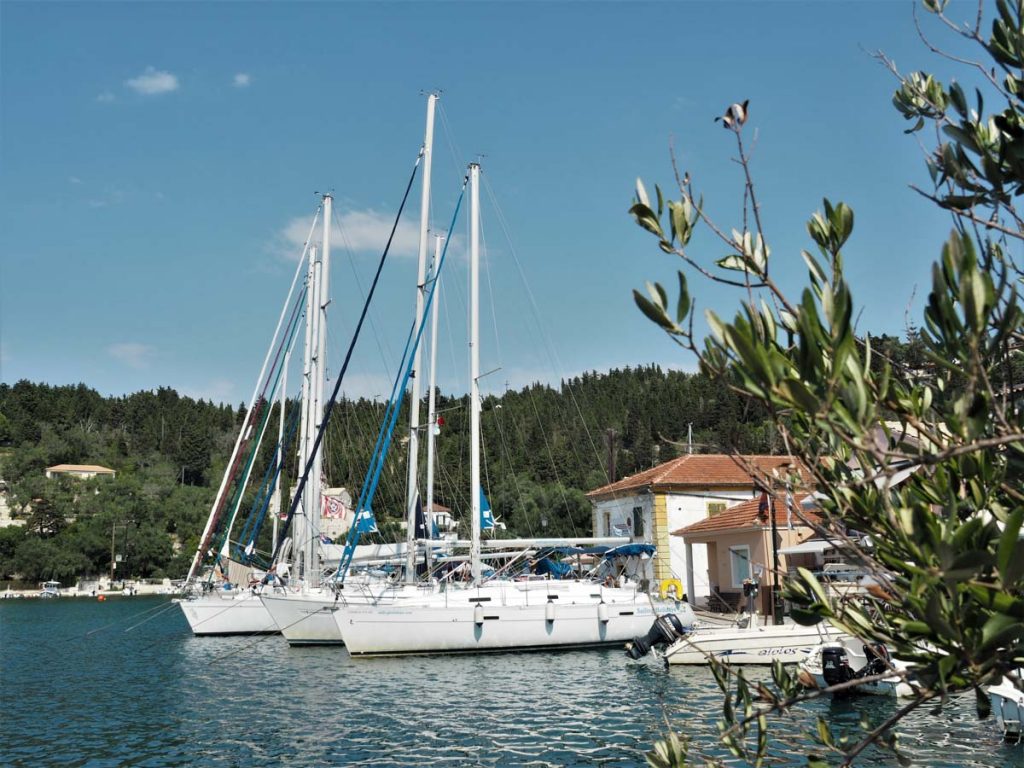
Small and unspoiled Paxos is a discovery. Even seasoned travelers to Greece will be delighted with its unspoiled character, its authenticity, and its great variety of quality activities.

